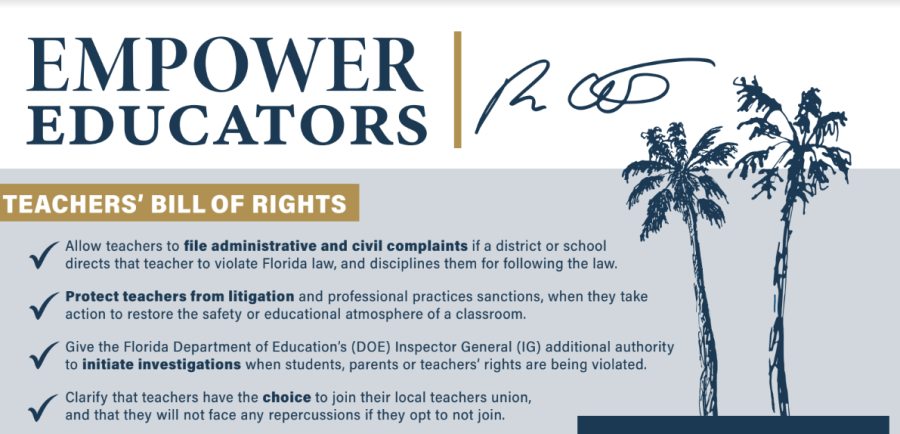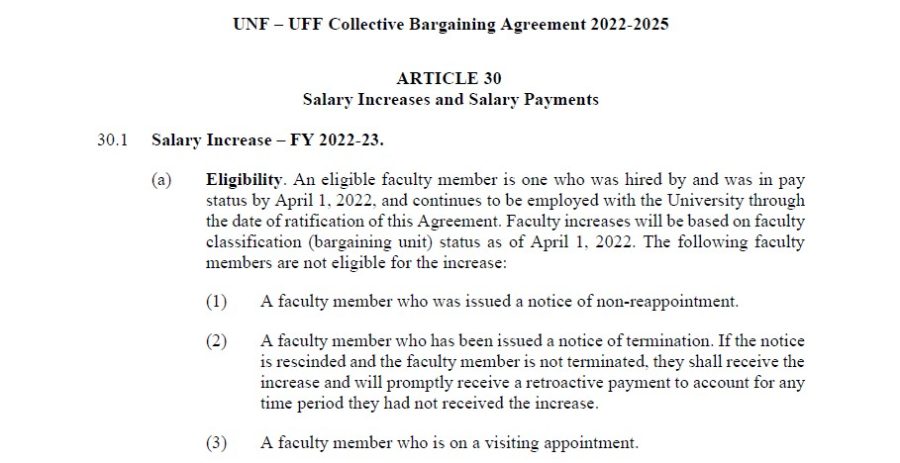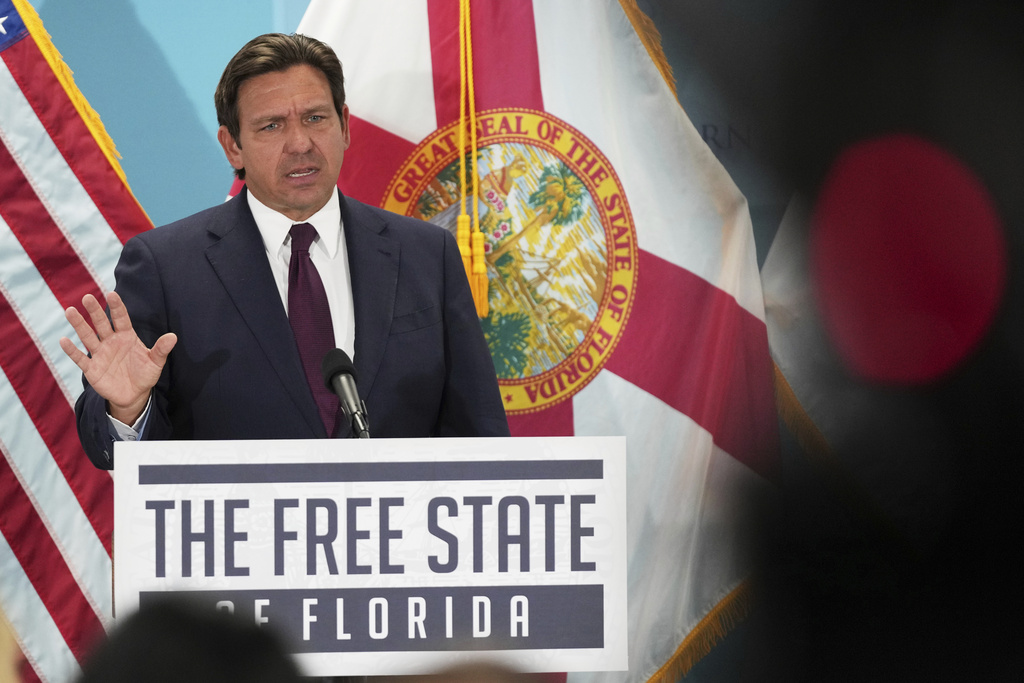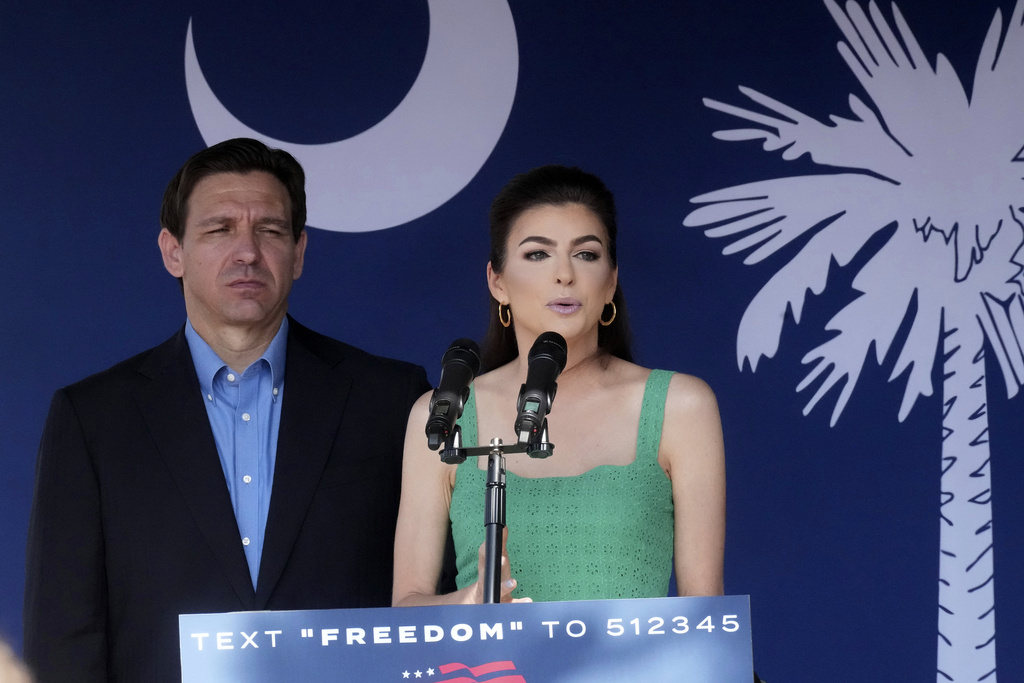Florida Gov. Ron DeSantis has proposed another “unprecedented” piece of legislation relating to education in Florida — one that introduces a Teachers’ Bill of Rights that includes the potential for a raise in teachers’ salaries, and changes to how faculty unions operate.
Part of the proposal aims to clarify that teachers have the choice to join their local teacher’s union and that they will not face any repercussions if they opt to not join.
“We want more transparency into how school unions operate, and we are going to fight against school union haggling that holds teachers and their salary increases hostage,” DeSantis said regarding the bill. “Partisan groups should not be given special privileges.”
Included in the proposed Teacher Bill of Rights is a “Transparency and True Representation” section that introduces a new requirement for school unions to “represent at least 60% of employees eligible for representation” in order for the union to exist.

In higher education, there are currently no set union density membership requirements. Professor Elizabeth Brown explained that now, for unions to be created, the university faculty as a whole has to vote on whether or not they want a union for it to come into existence in the first place. Brown is an associate professor of UNF’s psychology department and president of UNF’s faculty union, UNF-UFF.
“It’s something that’s hotly debated, and it takes years,” Brown said. “So, the fact that we [UNF] have one speaks to the fact that the faculty wanted a union.”
One of the benefits of how unions currently operate is that members can opt-in for a paycheck deduction for union fees so that it’s automatically taken out of monthly paychecks. For UNF-UFF, the cost to join is 1% of one’s pre-tax base salary, making it a percentage of one’s base salary, rather than a flat rate.
The “Paycheck Protection” of the proposed bill prohibits, “any union representing public employees as a bargaining agent from having its dues and assessments deduced or collected by the public employee’s employer.” This would then take away members’ ability to deduct union fees from their paychecks.
The “Paycheck Protection” also prohibits the distribution of school union literature at work, including schools, which Brown explained as an added inconvenience for how unions currently operate considering that is one of the best ways members are able to communicate with each other and potential members.
The bill also prohibits the school union officials from conducting union business at their taxpayer-funded jobs, or on company time, which Brown explained is a bit confusing when it comes to higher education because it isn’t necessarily a nine-to-five job.
“We quite literally are on the clock 24 hours a day,” Brown said. “So, not doing it on the clock, it would become a question of okay, what is the clock? Because we don’t have set hours of employment… when can we do our union work?”
The bill also proposes an additional $200 million to continue to raise teacher salaries in Florida, bringing the total to $1 billion in his recommended budget for the next year, according to the official Florida governor’s website.
“This is a huge package to increase teacher pay, support teacher empowerment and protect teachers’ paychecks by ensuring they have control over their hard-earned salary,” said DeSantis.
Faculty union efforts
The United Faculty of Florida (UFF) is Florida’s largest union, representing over 25,000 faculty members at all 12 Florida public universities and 16 state and community colleges. They represent members in all higher education issues including academic freedom and bargaining for quality salaries and benefits. UNF-UFF currently represents over 600 full-time UNF faculty.
UNF-UFF covers faculty rights — which can mean anything from negotiating employee contracts, salaries, and tenure schedules, to helping faculty understand the processes of grievances and appealing decisions, just to name a few.
Negotiations and decisions on things like contracts and evaluations are made in connection with the Board of Trustees, meaning neither side controls that narrative, making it a joint product.
In Nov. 2022, UNF-UFF negotiated a new contract that included a 5% raise, which Brown described as a huge accomplishment especially because UNF is considered the lowest-paid faculty for the entire State University System of Florida.

She explained that a lot of what faculty unions advocate for is with students in mind to ensure they provide the best educational experience for students.
“Basically, if you cut our ability to advocate, there are going to be some repercussions,” Brown said.
While the legislative proposal may appear that it wants to make sure unions either don’t exist or substantially lose their voice, Brown explained that it doesn’t take into account the fact that faculty join unions because they see the value in it and want to make sure they have a say in what’s going on.
“We’re about working together, we’re about giving voice to people who feel like they might not have a voice,” Brown said. “We support each other, and our ultimate goal is to make UNF a better place.”
While the Teachers’ Bill of Rights is only a proposal at this point, Brown explained that these restrictions on unions could potentially take away the ability for faculty to have a say in areas like contracts, salaries, and expectations for tenure— which many members are concerned about.
To read the legislative proposal, Teachers’ Bill of Rights, in its entirety, click here.
___
For more information or news tips, or if you see an error in this story or have any compliments or concerns, contact editor@unfspinnaker.com.
















